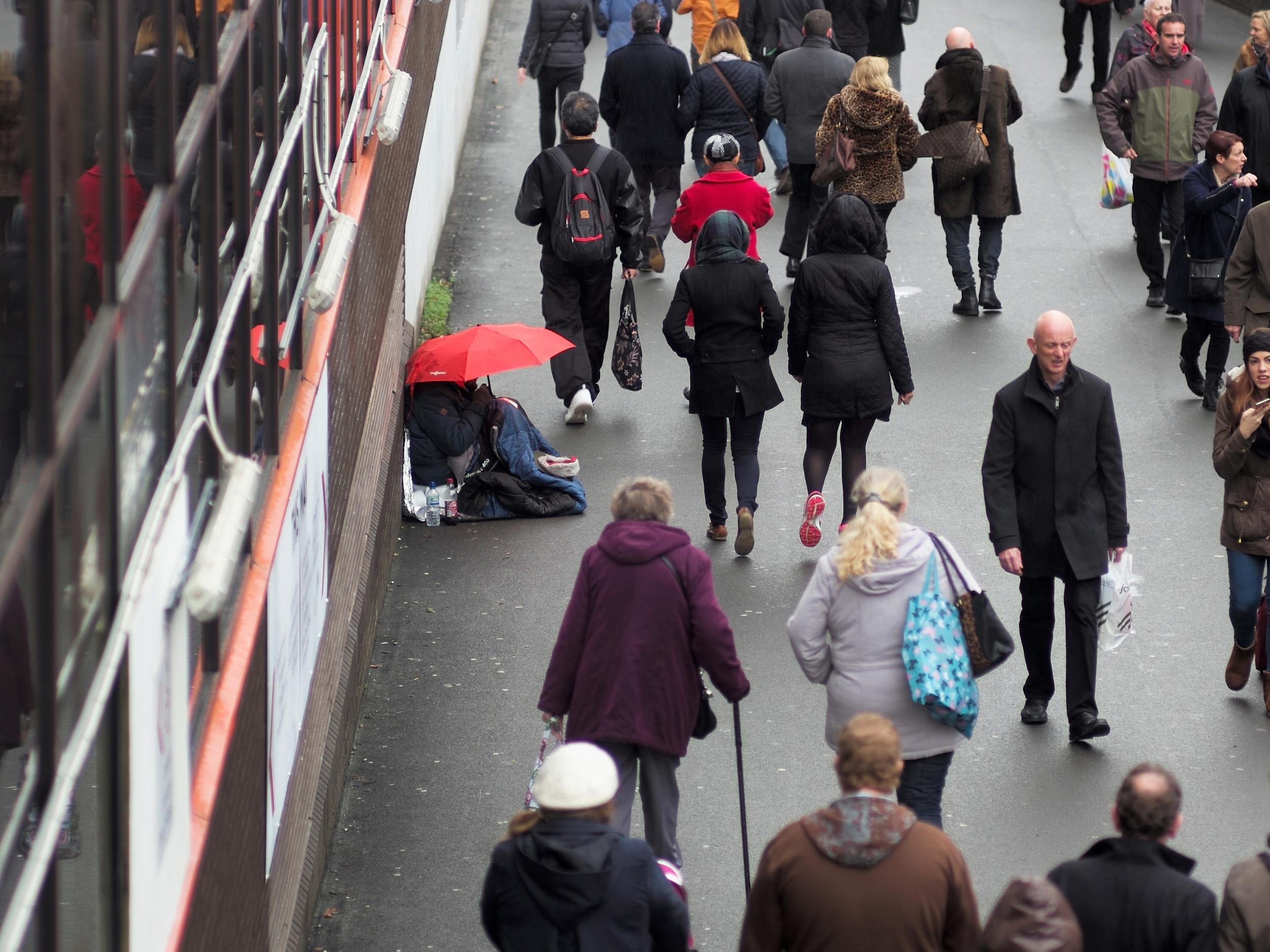Higher taxes for rich will not harm economic growth, says IMF
Increasing inequality within countries could actually be harming economic productivity, the organisation warns in its biannual report

Your support helps us to tell the story
From reproductive rights to climate change to Big Tech, The Independent is on the ground when the story is developing. Whether it's investigating the financials of Elon Musk's pro-Trump PAC or producing our latest documentary, 'The A Word', which shines a light on the American women fighting for reproductive rights, we know how important it is to parse out the facts from the messaging.
At such a critical moment in US history, we need reporters on the ground. Your donation allows us to keep sending journalists to speak to both sides of the story.
The Independent is trusted by Americans across the entire political spectrum. And unlike many other quality news outlets, we choose not to lock Americans out of our reporting and analysis with paywalls. We believe quality journalism should be available to everyone, paid for by those who can afford it.
Your support makes all the difference.Higher tax rates for the rich would help reduce inequality without having a severe impact on economic growth, the International Monetary Fund has said.
The influential organisation, which is based in Washington DC, has published its biannual fiscal monitor to voice its support for the policies of left-wing politicians such as Labour leader Jeremy Corbyn, who has called for high earners to pay more into the public purse.
Countries around the world are suffering the consequences of rising internal inequality and the IMF said tax theory suggested the top one per cent of earners should be paying "significantly" more.
It highlighted that although inequality between countries has fallen in recent decades due to the economic success of countries such as China and India, internal inequality in places like the US and the UK has risen sharply.
The IMF warned that excessive inequality could lower economic growth as well as polarise politics.
Its report said: "Progressive taxation and transfers are key components of efficient fiscal redistribution.
"Optimal tax theory suggests significantly higher marginal tax rates on top income earners than current rates."
The IMF's message would appear to put it at odds with the Trump administration, whose new tax proposals rely heavily on cuts for companies and the wealthy.
The IMF noted that top personal income tax rates in Organisation for Economic Co-operation and Development (OECD) rich nations had fallen to 35 per cent in 2015 from an average of 62 per cent in 1981.
The IMF, along with the World Bank, will hold its semi-annual meeting of global policymakers later this week.
Its call to arms on promoting more inclusive growth comes at an uncertain time for many richer countries.
The rise of populist politicians, such as Donald Trump, populist parties, such as the Alternative für Deutschland (AfD), and political shocks like Brexit have been blamed on voters becoming increasingly alienated from the ruling elites amid stagnating wages and rising house prices.
In its report, the IMF said the decline in overall global inequality over the past 30 years resulting from globalisation and technological progress masked deep issues within countries, some caused by the same factors.
Over the same period, 53 per cent of countries have seen increased income inequality, the IMF said, and Latin America remains the most unequal in the world. The increase in inequality has been particularly acute in advanced economies but is spread across the globe.
"It is important to emphasise that inequality has increased in the largest countries in the world: China, India and the United States," said Vitor Gaspar, director of the IMF's fiscal affairs department.
In many advanced economies such as the United States, the IMF said, rising wealth inequality has resulted from a rising concentration of wealth held by the richest 1 per cent of the population while economic growth has also mainly accrued to the top in low-income developing countries.
During his speech to the Labour party conference in September, Mr Corbyn vowed to overturn the free market economic thinking which has dominated UK policy making for the last 30 years.
He said: "Our message to the country could not be clearer: Labour is ready.
"Ready to tackle inequality. Ready to rebuild our NHS. Ready to give opportunity to young people, dignity and security to older people."
Labour was widely expected to lose the snap general election in June as the party was badly trailing in the polls.
But, although the party did not win, it inflicted a humiliating blow on Theresa May and her Commons majority.
Though Ms May's lacklustre campaigning has been seen as a significant reason for the party losing 30 seats, the Government signalled it may soon ease up on its austerity policies after many concluded the public had grown tired of low pay and strained public services.
Additional reporting by Reuters
Join our commenting forum
Join thought-provoking conversations, follow other Independent readers and see their replies
Comments